Episode Description
This episode examines the critical role professional care workers play in guiding clients through the dying process. Ai-jen Poo, Co-Director of Caring Across Generations, weighs in on the long-term care crisis our country faces, and U.S. Senator Bob Casey discusses a series of long term care-related policies he’s fighting to pass.
Paula Fox
 Paula Fox is a Certified Nursing Assistant at the Jewish Home in Bridgeport, Connecticut. She has been providing skilled nursing care for over 25 years. She cared for Rose Santilli for nearly four years.
Paula Fox is a Certified Nursing Assistant at the Jewish Home in Bridgeport, Connecticut. She has been providing skilled nursing care for over 25 years. She cared for Rose Santilli for nearly four years.
Diane Santilli

Diane Santilli began her career at with clubsystems group (formerly Diamond Management Systems) in 1997. As a Systems Integrator & Trainer, she traveled extensively to clients’ sites across the US, Canada, and the Bahamas, implementing, integrating, configuring, and training clubs’ management and employees on software and club operations.
In 2003, Diane was promoted to Training Department Manager and then, Senior Systems Consultant. In 2016, Diane became a Customer Care Manager, and in January 2020, was promoted to Director of Account Management. Diane retired at the end of 2021 but has been brought back as a consultant to work on various projects as well as client and staff needs. She is determined to be fully retired by June 30, 2022, as she hopes to prepare for her upcoming role starting in mid-September as a Nonna/Grandma!! She certainly had amazing role models in that area.
Vincent Santilli
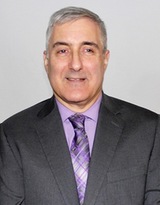
Vincent Santilli is the CEO/Executive Director of ABRI/Homes for the Brave, a non-profit organization in Bridgeport, Connecticut dedicated to providing safe housing, vocational services, mental health treatment and life skills coaching to homeless individuals, almost all of whom are Veterans. Vincent is Rose Santilli’s son, and along with his sister, Diane, was an active and loving caregiver for his mother.
Rose F. Santilli

Rose F. (Tangredi) Santilli, age 94, of Bridgeport, passed away peacefully on Monday, April 19, 2021, at Jewish Senior Services with her devoted children by her side. She was the beloved wife of the late Joseph P. Santilli, whom she cherished . Rose was born in Queens, New York, on October 18, 1926. She was an avid fashion enthusiast and advisor and lived up to the phrase ”shop ‘til you drop”!
Rose worked as a real estate agent for the Mase Agency before her retirement. She was a loving and devoted wife, mother, grandmother and friend of many, and will be deeply missed by all who knew and loved her.
Survivors include her loving children, Diane Santilli and her husband Kevin Aylward of Shelton, Vincent Santilli and his wife Jeanine of Trumbull, and her cherished grandchildren and honorary grandchildren. Diane and Vincent would especially like to recognize the staff and management at Jewish Senior Services for the wonderful and heartfelt care of their mother, specifically Paula Fox and Rosemary Wright. They are so extremely grateful to for the kind, loving, and expert attention given by them as well as Nurse Lissette Amoedo and Nursing supervisor, Allison Shortell. Thank you is just not enough!
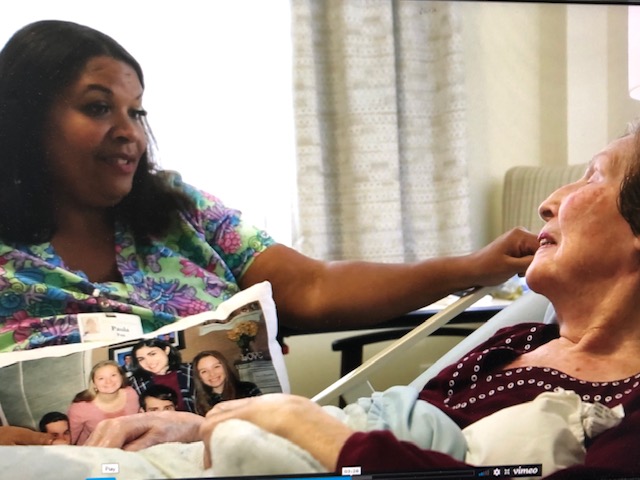
Andrew Banoff

As the President & CEO of Jewish Senior Services (JSS) over the past 20 years, Andrew Banoff has led the transformation of a nursing home into a fully integrated senior living continuum of care that provides seniors and their families a wide selection of services.
This includes the development of Weinberg Campus, now home to Connecticut’s first household model nursing home and assisted living community.
The campus includes a range of home care and community-based services, family hospice, an adult day program, adult family living homes, and the Center for Elder Abuse. It also houses facilities that serve the broader community such as the Federation for Jewish Philanthropy, a fitness center and child development center.
Previously, Andrew held numerous related positions, including serving as Executive Vice President of St. Vincent’s Health Services, an acute care teaching hospital in Bridgeport; and President & CEO of Connecticut Health Enterprises, a managed care and physician practice management company. Andrew is a Fellow in the New York Academy of Medicine and the American College of Healthcare Executives. He holds a Bachelor of Arts Degree in Economics from Duke University and a Master of Business Administration Degree with a concentration in Health Care Administration from Baruch College. He has two adult children, Rebecca and Benjamin, of whom he is most proud.
Ai-jen Poo

Ai-jen Poo is an award-winning organizer, author, and a leading voice in the women’s movement. She is the President of the National Domestic Workers Alliance, Director of Caring Across Generations, Co-Founder of SuperMajority, Co-Host of Sunstorm podcast and a Trustee of the Ford Foundation. Ai-jen is a nationally recognized expert on elder and family care, the future of work, and what’s at stake for women of color. She is the author of the celebrated book, The Age of Dignity: Preparing for the Elder Boom in a Changing America. Follow her at @aijenpoo
U.S. Senator Bob Casey
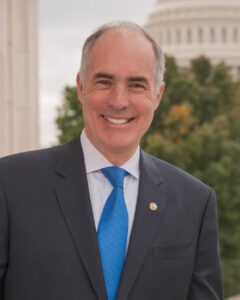
He is a strong advocate for policies that improve the health care and early learning of children and policies that will raise wages for the middle class. Senator Casey serves on four committees including the Senate Finance Committee, Senate HELP Committee and Senate Select Committee on Intelligence. He is also the Chairman of the Special Committee on Aging, where his agenda is focused on policies that support seniors and individuals with disabilities. Senator Casey and his wife Terese live in Scranton and have four adult daughters.
Alex Spanko

Alex Spanko is the director of communications for The Green House Project, a national non-profit dedicated to replacing the institutional nursing home with elder-directed alternatives, Alex is an experienced writer and editor who helped launch Skilled Nursing News (SNN), a leading industry trade publication based in Chicago, in 2017. At SNN, he developed a deep and broad knowledge of nursing home finance, reimbursement, and regulation. Alex’s work has also appeared in the Boston Globe and the Boston Business Journal.
Blog
Care Can’t Wait: a campaign to build a strong care infrastructure
By Ai-jen Poo
President of National Domestic Workers Alliance
&
Director of Caring Across Generations
Caregiving is the glue that holds families and society together. But when it comes to caring forour loved ones, it is viewed as a personal responsibility. And that responsibility primarily falls on women, including those who are caring for their parents AND their kids; or those who are juggling caring for an elder while holding onto a paid job. It’s no surprise that caregivers often feel that they failed – that they don’t earn enough or didn’t save enough or don’t have the right insurance. But these are not “personal problems”, they are universal problems that impact over 50 million Americans today! And without a comprehensive approach to addressing the care crisis in America, we will suffer as a society.
We now know that at the beginning of the pandemic, many families were isolated from one another, unable to visit across cities or towns or states, and for those who had loved ones in nursing homes, they were unable to see them for over a year, even if they were dying. This had both an emotional and physical toll on us as a society. Even now, as we have somewhat acclimated to the “new normal” of COVID, this crisis of care rages on.
If there’s any silver lining to the pandemic, it’s that it has pushed us past any illusion that care can – or should – be an individual responsibility managed by any single person, regardless of how prepared we think we are.
Our nation needs a care infrastructure that addresses the complex needs of families today. Our country has failed to create programs and policies to support the care we need. In fact, the US is one of few developed nations that has no paid family leave program, no universal childcare, and no long-term care program. While we update and maintain the infrastructure our roads, bridges, airports and broadband access, we must invest in caregiving programs and systems as a public good, providing access to a full range of services and supports, just as physical infrastructure provides access via our transportation and communication infrastructure.
Over a decade ago, I launched a campaign called Caring Across Generations, to bring all of us who have a stake in a strong care infrastructure together. When the pandemic took hold, along with dozens of organizations[1] who work on child care, long-term care and paid leave, we launched the Care Can’t Wait coalition. Our charge has been to seize the moment of pandemic awakening and crisis to push Congress to make robust investments to expand access to childcare, paid family and medical leave (PFML), and home- and community-based services (HCBS), and to ensure good jobs for the care workforce.
Together, we moved hundreds of thousands of constituent calls, organized town halls online and in person with the Vice President, Cabinet members, celebrities and everyday caregivers, families and recipients of care, organized lobby days, press conferences, and more. We succeeded in helping to pass legislation in the House that included historic investments in all the pillars of our agenda. And while legislative action is still in limbo in the Senate, we have entered a new phase of progress and awareness about the urgency and power of the care agenda.
We have a once in a generation opportunity to build the care infrastructure we all need so that our children and our grandchildren don’t have to go through what we have been through: the isolating experience of struggling through the financial and practical challenges of caregiving as an individual responsibility.
When we invest in care, especially in the home and community, we improve the quality of life and care for people who prefer to age at home. We improve the quality of work for millions of care workers who want to do this work. We enable working family caregivers to return to work because they have the support of care workers. We save the system money because home and community-based services costs states much less that institution-based care, and we strengthen the infrastructure needed to care for a growing older population long term. There has never been such a win-win-win.
The “shape of care” is changing. It’s shifting from an individual burden we carried alone to a shared responsibility we can all benefit from. It’s shifting from a struggle often quietly experienced in isolation to a national concern on our economic policy agenda. And it’s taking the shape of an investment rather than a cost, because we see the social and economic returns it generates for us today, and will generate for our children in the years to come.
If you’d like to get involved, you can sign up to be a part of Caring Across Generations, www.caringacross.org. You will be joining a growing movement of caregivers, people who rely on care, and their families, working toward building a future that supports and values care.
Ai-jen Poo is an award-winning organizer, author, and a leading voice in the women’s movement. She is the President of the National Domestic Workers Alliance, Director of Caring Across Generations, Co-Founder of SuperMajority, Co-Host of Sunstorm podcast and a Trustee of the Ford Foundation. Ai-jen is a nationally recognized expert on elder and family care, the future of work, and what’s at stake for women of color. She is the author of the celebrated book, The Age of Dignity: Preparing for the Elder Boom in a Changing America. Follow her at @aijenpoo
[1] Care Can’t Wait organizations include: American Association of People with Disabilities, Be a Hero, Caring Across Generations, Center for Law & Social Policy, Closing the Women’s Wealth Gap, Community Change, Family Values at Work, Justice in Aging National Council on Aging, Momsrising, National Women’s Law Center, National Partnership for Women & Families, National Domestic Workers Alliance, Paid Leave for All, Service Employees International Union (SEIU), The Arc, Times Up Foundation, and Zero to Three.
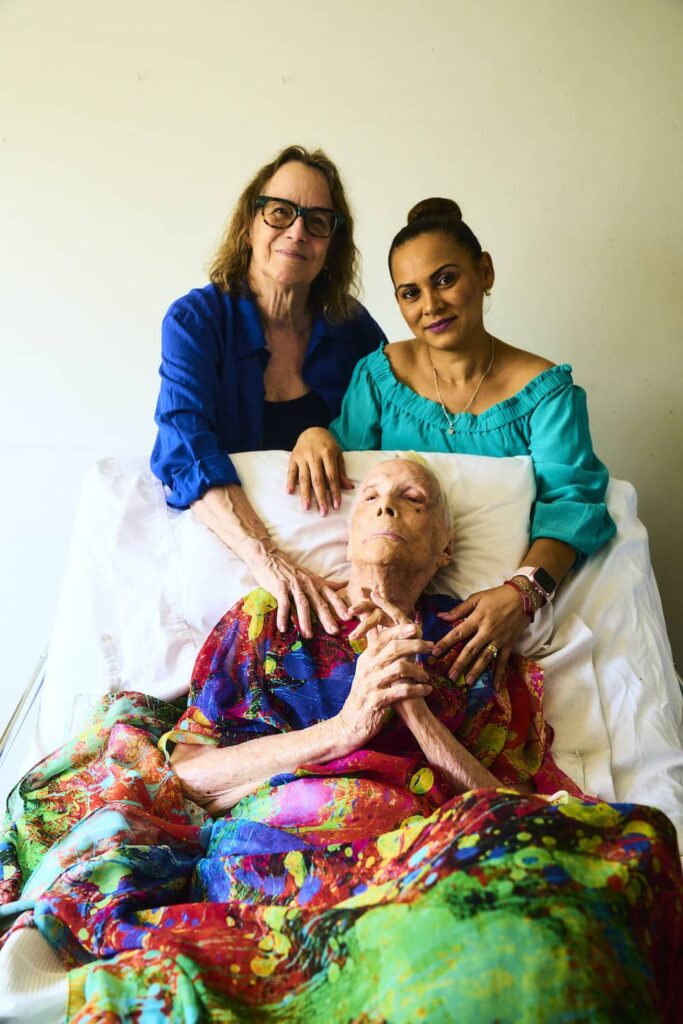
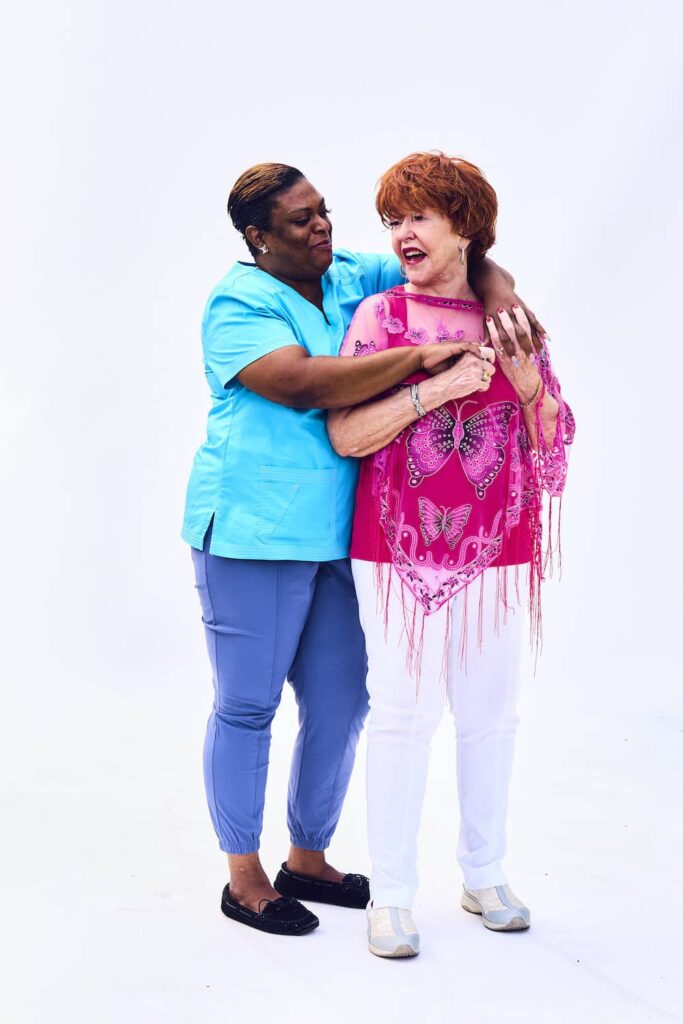
Resources
Strategies for Change
- Transcript: Heather McGhee Interviews Ai-jen Poo for ‘The Ezra Klein Show’, 2021, The Ezra Klein Show, focuses on the care crisis we face, the obstacles to addressing it and what we can do to solve it.
Finances
- Getting Old is a Crisis More and More Americans Can’t Afford, Michelle Cottle, The New York Times, 2021
- Financial Struggle of Nursing Homes Puts Medicaid Reimbursement Rates Back in the Spotlight, American Healthcare Association, 2020
Care Workers
- High Nursing Staff Turnover In Nursing Homes Offers Important Quality Information, by Ahvin Gandhi, Huizi Yu, and David C. Grabowski, 2021
- Caregiver Statistics: Health, Technology, and Caregiving Resources, The Family Caregiver Alliance, 2016
- Raise the Floor: Quality Nursing Home Care Depends on Quality Jobs, PHI National, 2016
- Feeling Valued Because They are Valued: a Vision for Professionalizing the Care Workforce, Leading Age
- Cranford, Cynthia J.; Home Care Fault Lines: Understanding Tensions and Creating Alliances. Ithaca: ILR Cornell University Press. 2020.
- The Forgotten Frontline Workers: The precarious world of nursing home workers during the COVID-19 pandemic, Interview with Christine Bishop and Karen Donelan by Bethany Romero, 2021
Race and ethnicity in Dying
- Expanded Definitions of the ‘Good Death’? Race, Ethnicity and Medical Aid in Dying. by C.D. Cain and S. McCleskey, Sociology of Health & Illness, 2019
Legislation
- Biden’s ‘Transformative’ Plan Redefines Infrastructure to Include Caregiving, by John Nichols, The Nation, 2021
- Nursing Home Improvement and Accountability Act, co-sponsored by Senator Bob Casey and Senator Ron Wydon
- Nursing Home Modernization Act, co-sponsored by Senator Bob Casey and Senator Jim Toomey
- The Case for Public Investment in Higher Pay for New York State: Estimated Costs and Savings, by Isaac Jabola-Carolas, Stephanie Luce, Ruth Milkman, 2021
- Designing Universal Family Care: State-Based Social Insurance Programs for Early Child Care and Education, Paid Family Medical Leave, and Long-Term Services and Supports, by Benjamin Veghte, Alexandra Bradley et al, National Academy of Social Insurance, 2019
Activism
- National Domestic Workers Alliance works for the respect, recognition, and rights for the nearly 2.5 million nannies, housecleaners, and home care workers who do the essential work of caring for our loved ones and our homes.
- Caring Across Generations, Nonprofit organization focused on care-related policy from child care to elder care. Advocacy organization that fights for policies that support elders’ ability to receive care in the home, and that support the home care workers who provide that care.
- Diverse Elders Coalition (DEC) advocates for policies and programs that improve aging in our communities as racially and ethnically diverse people; American Indians and Alaska Natives; and lesbian, gay, bisexual and/or transgender people. DEC advocates for policies and programs that improve aging in our communities as racially and ethnically diverse people – including care/caregiving.
- Care Can’t Wait coalition is a coalition of organizations, stakeholders and advocates committed to building a comprehensive, 21st century care infrastructure and funding to expand access to childcare, paid family and medical leave (PFML), and home- and community-based services (HCBS), and ensure good jobs for the care workforce.